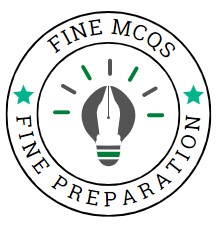11. Which of the following is the most common form of color blindness that is usually found in males?
(a) Difficulty in distinguishing red from green
(b) Difficulty in distinguishing red from blue
(c) Difficulty in distinguishing blue from black
(d) None of these
12. What is the condition of a patient in a coma?
(a) Unresponsive to internal stimuli
(b) Unconscious to internal stimuli
(c) Unresponsive to external stimuli
(d) Unconscious to external stimuli
13. Constipation occurs due to the irregular action of:
(a) Liver
(b) Bowels
(c) Stomach
(d) None of these
14. Without harming human tissues, which substance destroys bacteria in the body?
(a) Antibiotics
(b) Antibiotics
(c) Antiseptics
(d) Acute anti-viral
15. In which disease does the pancreas prevent the body from producing the hormone insulin, so that sugars cannot be used properly?
(a) Diabetes
(b) Diabetes mellitus
(c) Both of these
(d) None of these
16. Dysentery is an infection of the large intestine. What is its other name?
(a) Dengue
(b) Dyspepsia
(c) Gingivitis
(d) Measles
17. What do antibodies do in the body?
(a) Fight against the germs of disease
(b) Fight against bacteria
(c) Fight against infections
(d) None of these
18. The disease which itself travels from place to place is called:
(a) Epidemic
(b) Endemic
(c) Airborne disease
(d) Infection
19. Which disease, being helpful, speeds up the body’s chemical processes and mobilizes its immunological defense against infectious disease?
(a) Fever
(b) Dengue
(c) Both of these
20. In which organ’s inflammation causes Gastritis?
(a) Gastritis
(b) Ulcer
(c) Gasto-ulcer
(d) Epilepsy

